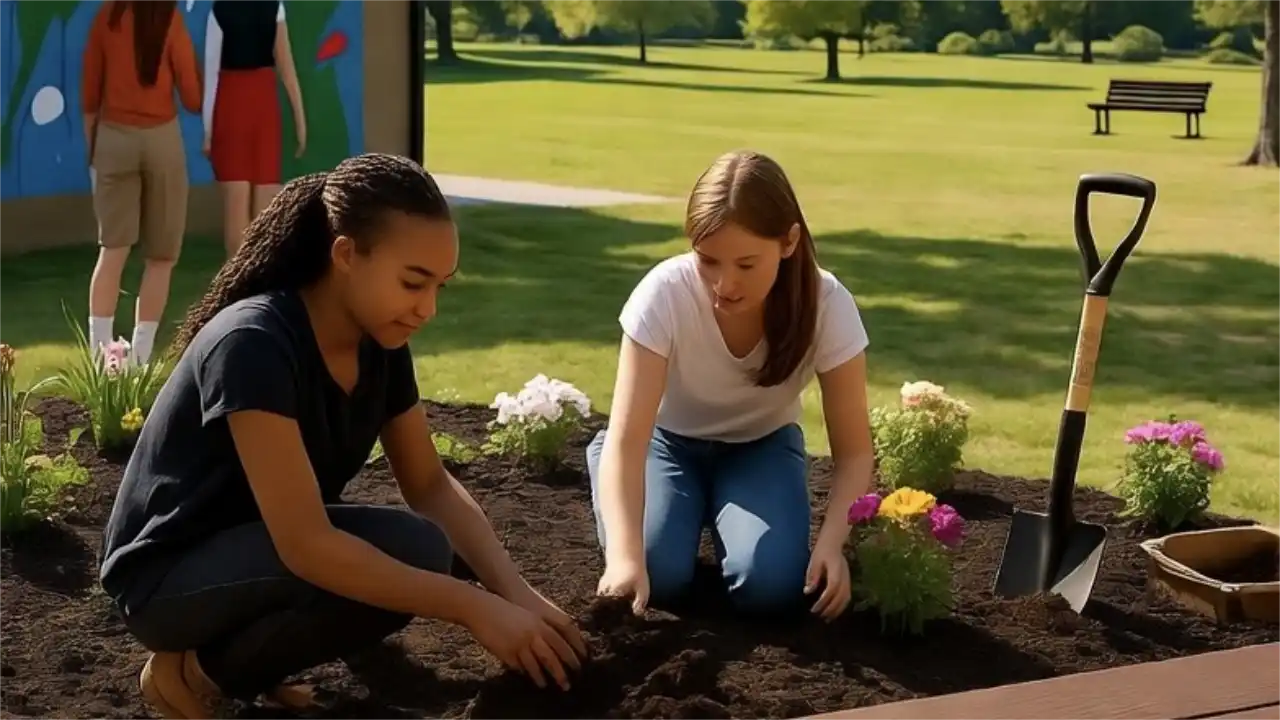
Strengthening Links with the Community: Build Lasting Projects for the Neighborhood
W
hen children help build something that lasts—a garden bed, a bench, a mural—they experience how teamwork can shape their surroundings. These efforts aren’t just tasks; they’re lessons in shared vision, planning, and purpose. By assigning roles like designer, builder, or communicator, children learn how to work with others to turn ideas into tangible outcomes. A prompt like, “What could we create that helps the neighborhood?” shifts the focus from short-term tasks to lasting contributions.
One summer, my daughter joined a team planting a garden in a public space. Early on, the group struggled to coordinate. I asked her, “How would you make this go more efficiently?” She suggested assigning zones—some for planting, some for watering—and kept a checklist to track progress. Later, she co-led a mural project and presented the plan to city organizers. Seeing her ideas take shape in the world gave her pride not just in what they built, but in how they built it—together.
Support your child in choosing a community project where they can contribute meaningfully. Encourage them to think about the goal, break it into parts, and consider who might help. Keep a simple journal or photo record of their role in the process. These experiences show children that when they work with others to build something real, they become part of something that lasts.
Strengthening Links with the Community
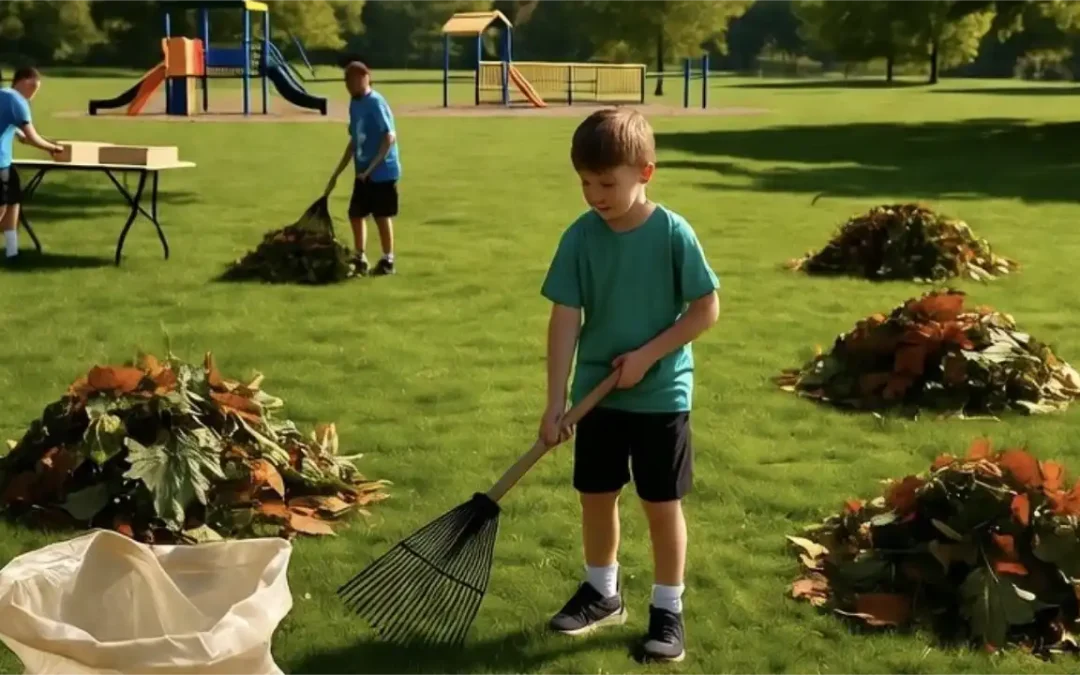
Strengthening Links with the Community: Pitch in at Community Events
Community events build belonging and civic awareness. Encourage children to help, participate, and take pride in shared contribution.
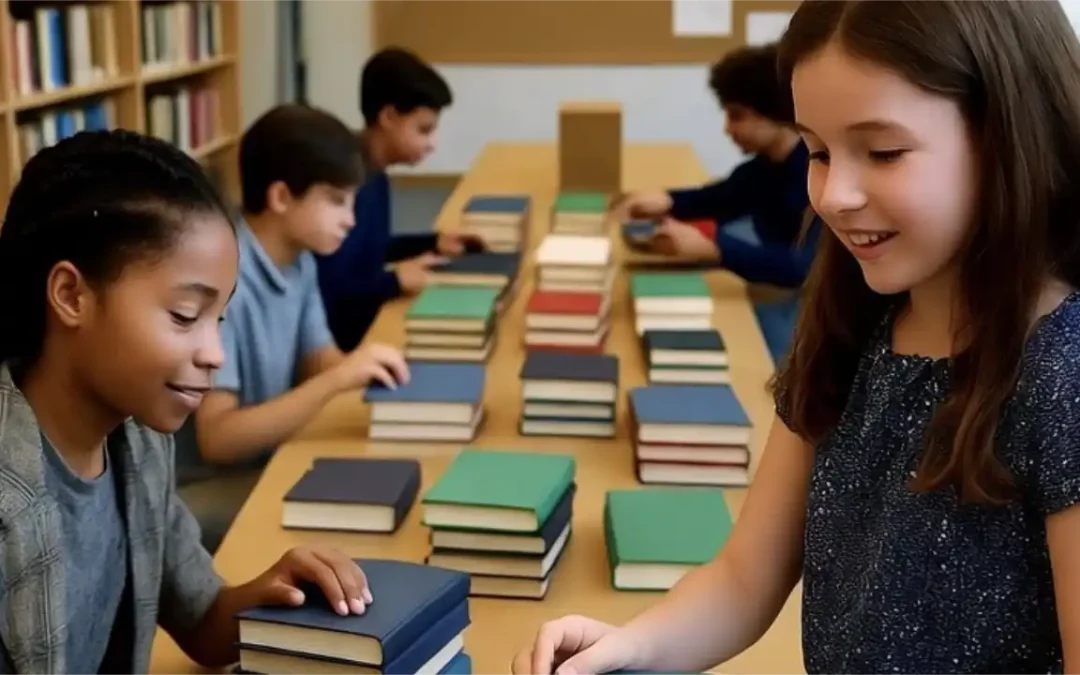
Strengthening Links with the Community: Volunteer with Library and Charity Groups
Volunteering teaches empathy, responsibility, and community connection. Help children grow through shared service experiences.
Table of contents

Primordial Soup for the Mind: Navigation
Navigate the book Primordial Soup for the Mind.
TIPS
- Ask “What’s the team’s dream?” to start creating.
- Praise their teamwork to value their effort.
- Keep a journal for their tasks.
- Suggest weekly project sessions.
ACTIVITIES
- Garden Grow: Plan a garden, ask, “How can you grow this together?” Work for 15 minutes.
- Mural Design: Create a mural, discuss tasks, 20 minutes.
EXAMPLE
My son led a bench project, saying, “We built it!” His projects started a civic hobby.

Download “Primordial Soup for the Mind: A Parent’s Guide to Nurturing Intellectual Growth”
Enter your information to get this article and hundreds more as part of the FREE book Primordial Soup for the Mind.
Share your thoughts with the Thought Academy community in the Comments section below.

Sharpen those skills!
Enter your information to get our FREE practice exercises so you can hone your critical thinking and reasoning skills!



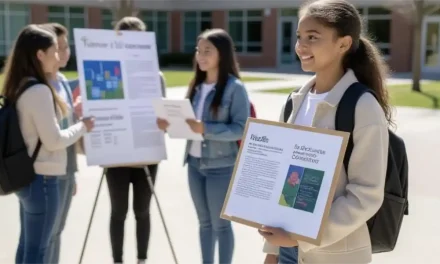
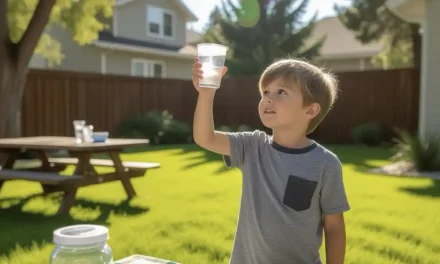


0 Comments